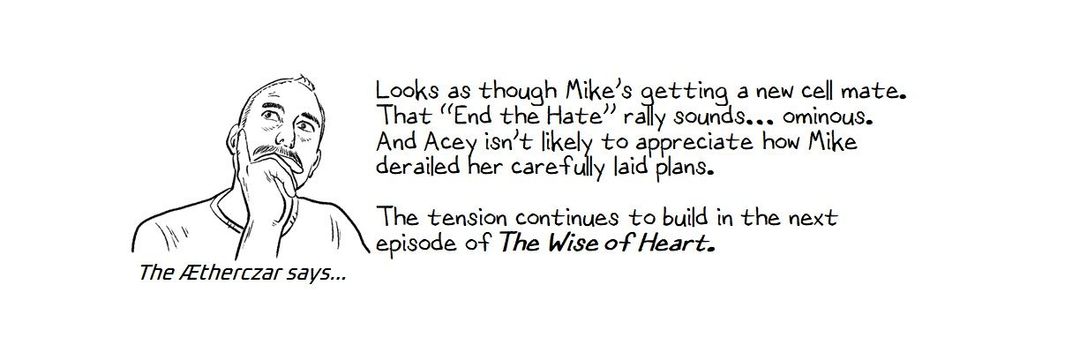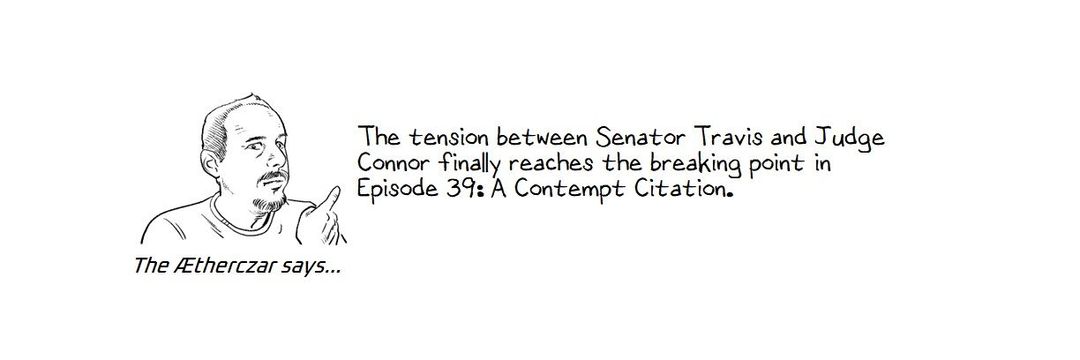
Episode 39: A Contempt Citation
“If the defense has concluded presenting its case,” Judge Connor continued, “we can move on to closing statements.”
“Your honor,” Senator Travis rose, legal pad in hand, “if it please the court, there is still the matter of the additional affidavits and evidence we filed last night which your honor has agreed to review with an open mind to reconsider whether we should have an opportunity to lay that evidence before the jury.”
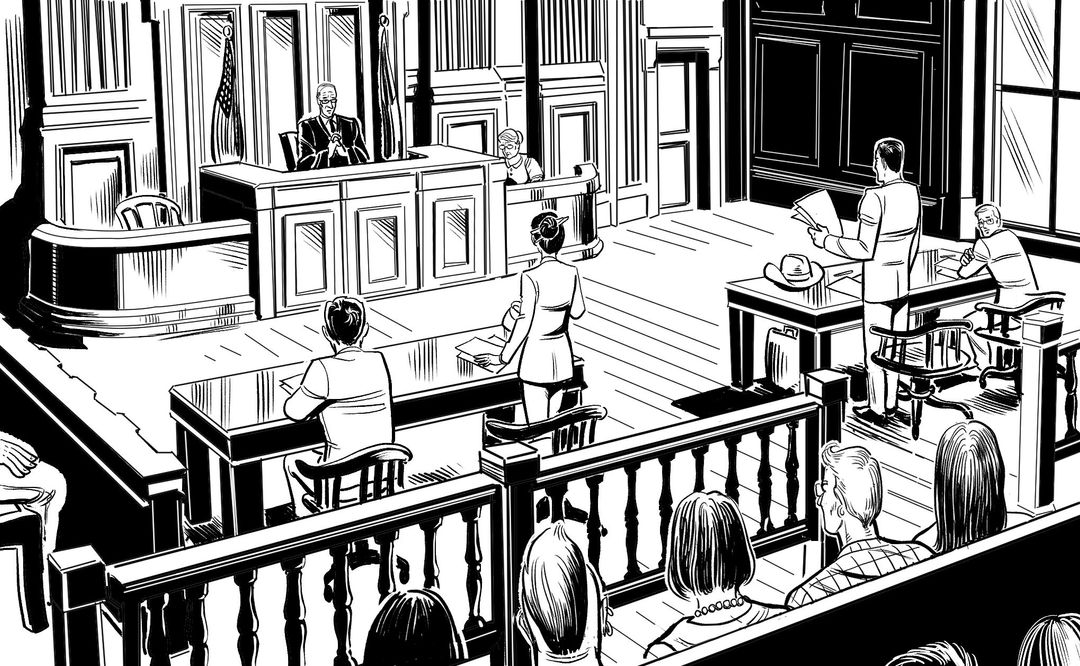
“Your honor,” Senator Castillo rose. “We respectfully request the opportunity to cross-examine these supposed experts and have that cross-examination entered into the record as well.”
“You would only have that opportunity,” the judge answered, “if I allowed the witnesses to testify on the stand.”
“Unless those witnesses’ testimony is to be placed before the jury,” Senator Travis observed, “they have no right to cross-examination. If we are not allowed to present our evidence and proof to the jury in open court, then we want to submit it in the record for the appellate court.”
“Professor,” Judge Connor asked, “what is the purpose of cross-examination?”
The purpose of cross-examination,” Senator Travis replied, “is to enlighten the jury in trial in open court.”
“Isn’t it an effort to ascertain the truth?” the judge asked.
“In this case,” a testy Senator Travis replied, “it’s an effort to show prejudice.”
“Order!” The judge banged his gavel to silence the titters of laughter that erupted in the courtroom.
“Your honor has denied the defense the opportunity to put our expert witnesses on record in front of the jury,” Senator Travis pointed out. “We merely wish to enter into the record the evidence you insist on keeping from the jury: not only the testimony of Dr. Lachman, but also the testimony of some of the de-transitioned victims of this gender affirmation mania. The state’s theory is that none of that evidence is relevant, and you have – so far – excluded that evidence as the state requested. The purpose of allowing the evidence into the record is that the higher court might properly determine whether this court was in error to exclude the evidence, whereupon your honor’s decision would either be upheld, or the case would be sent back with the instruction that the evidence be presented. Only in that latter case would the state be entitled to cross-examination.”
“I understood, your honor,” Senator Castillo interjected, “that we would have the right to cross-examine any of their supposed experts whether or not they were presented before the jury.”
“This court rules,” Judge Connor decided, “that the state and defense may both submit to the record of this case what affidavits and evidence they wish, but that none of the additional evidence in question that the defense has offered thus far will be presented before the jury. The court finds it inflammatory, prejudicial, and representing fringe viewpoints not generally accepted by the scientific and medical communities.”
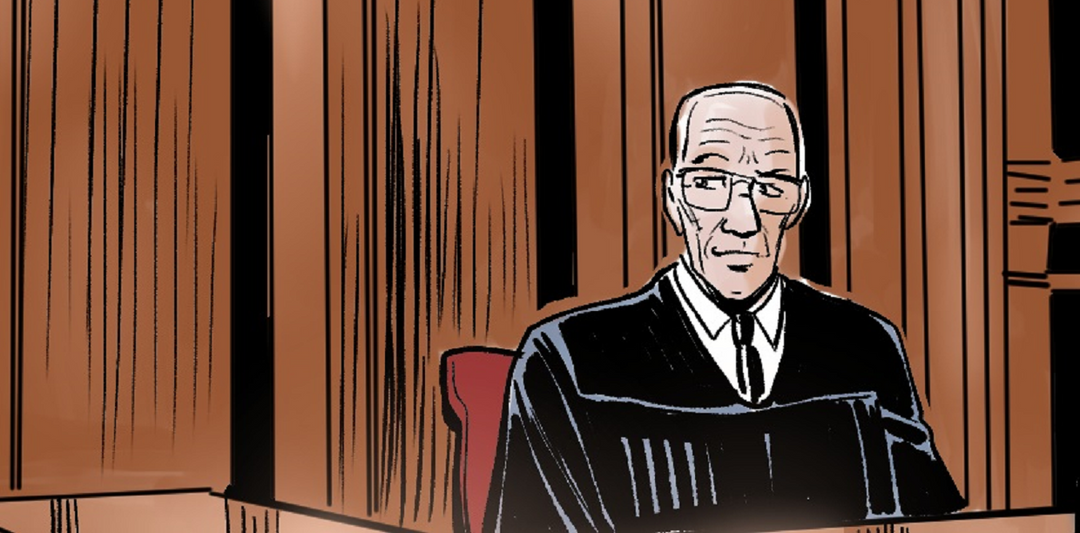
“I take exception to your honor’s ruling,” Senator Travis slapped his legal pad down on the defense table to emphasize the point. “This is hardly the fair and open reading of the evidence and affidavits your honor led us to expect.”
“I hope,” Judge Connor said dryly, “that the counsel for the defense intends no reflection upon this court.”
“Your honor is entitled to hope,” Senator Travis replied.
“I have the right to more than just hope,” Judge Connor’s brow furrowed in anger.
“As do I, your honor,” Senator Travis replied, “But sadly, my hopes have also been dashed.”
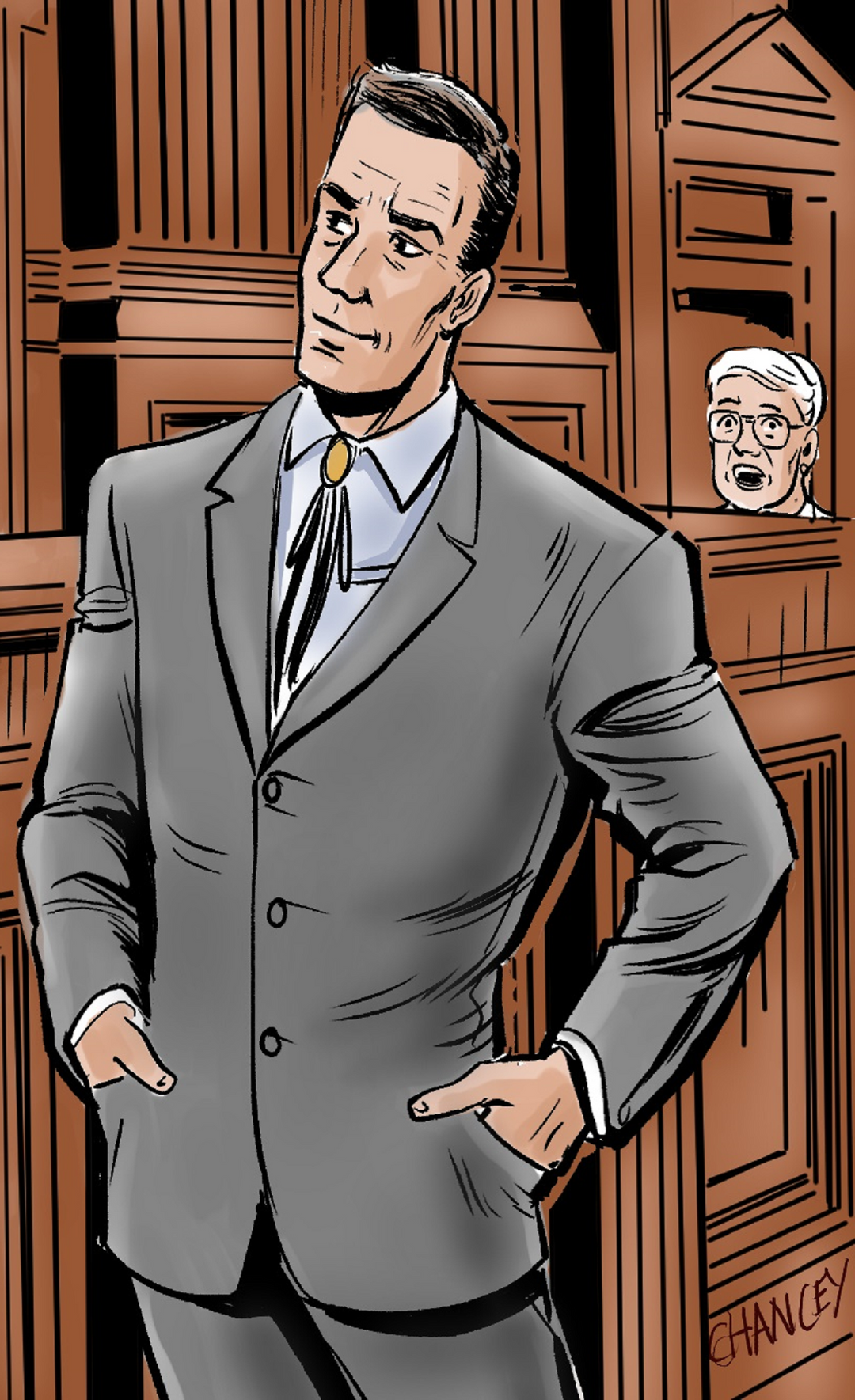
“Your attitude is unacceptable,” Judge Connor glowered at Senator Travis, “and this court demands an apology.”
“Your honor may continue to hope,” Senator Travis sat down.
“I find you in contempt of court. BAILIFF!” Judge Connor spoke sternly. “Detain Senator Travis overnight, and we’ll see if his attitude improves. This court stands adjourned until 9am tomorrow morning.”
“All rise!” Deputy Martínez announced.
As the judge departed, Senator Castillo proclaimed to the throng, “Everyone! We’re having an ‘End the Hate’ rally on the courthouse steps in two hours. See you all there!”
She turned to Senator Travis. “So sorry you’re going to miss it,” she smirked. Then, she turned her back to him and departed with Tony, President Buchmann, and Acey trailing behind.
“Sorry, Senator,” Deputy Martínez said, “but I’m going to have to ask you to accompany me.”
